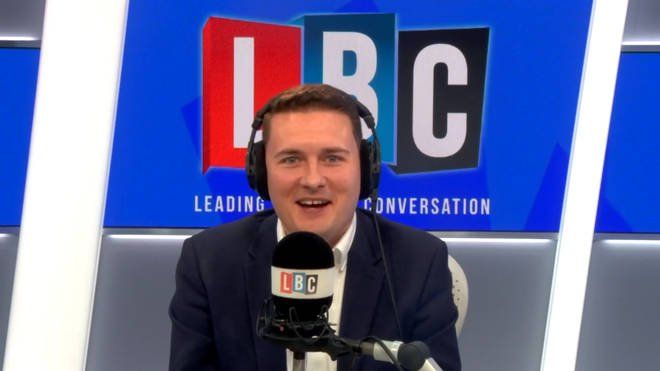Labour can't be trusted with Brexit
News & Social Media / Post
Labour still wants to drag us backwards

Today I heard Wes Streeting making some superficially sensible remarks about Brexit on LBC. He came over as very sensible and pragmatic. I am a eurosceptic and a leave voter, and I think he's quite right in saying that leavers did not vote to end all cooperation with the EU, and the current trading relationship with the EU leaves a lot to be desired.
That said, while it's encouraging to hear Labour's rhetoric is moving on from Brexit, I still get a sense Labour is trying to put Humpty back together again without thinking about the possible opportunities.
Labour has floated the idea of a veterinary agreement with the EU to ease border friction, but that would entail the adoption of EU rules and a continuation of the EU veterinary system. This was never a particularly good system to start with but there are now questions over its sustainability. Across Europe there is a shortage of qualified vets, and new vets want to live in the cities and work with domestic animals. Nobody trains to become a vet to inspect dead pigs - and certainly not for the salaries on offer.
Vets have no place in a modern food safety system. Their main concern is keeping animals alive and well. When an animal has been slaughtered, the core skill set of vets is redundant. The ideal veterinary controls, therefore, would be no veterinary controls except for live animals. As it stands, we’re employing expensive and overqualified people to do a job they aren’t good at.
Being that they are a system cost, the commercial drive is to get them as cheaply as possible and that usually means newly qualified immigrants, with limited English language skills and no enforcement experience in British slaughterhouses. So acute is the shortage that we're actively recruiting vets from Nigeria and Ghana. Some with questionable qualifications.
Essential to any food safety system, is effective communication and local knowledge, and this function cannot be fulfilled by transient workers who will move on within three years. The system was, and is, a travesty. Having been detached from the local authority enforcement infrastructure, it lost vital local intelligence on how the trade was functioning, where the cheats were, and who was cutting corners.
When we joined the single market, many local slaughterhouses were forced to close because of compliance costs, and the rules favoured large centralised slaughterhouses which, as we learned during lockdown, are Covid incubators. Brexit is an opportunity to restore local meat production, reduce food miles and improve sustainability in the meat industry.
It's telling that the large food producers who protested our exit from the single market are those such as the 2 Sisters Food Group, which is infamous for serious food safety breaches and abuse of workers. The corporate model is contingent on low wage exploitation and was only too keen to have a ready supply of cheap immigrant labour. Smaller, family run slaughterhouses were safer and provided long term skilled jobs for locals and that meant a better quality product.
A veterinary agreement with the EU is really just a return to a the pre-Brexit status quo, continuing a system that was already crumbling. Moreover, our departure from the single market means that value chains have already been broken, and such an agreement does not automatically restore our trade.
The Tories have a fetish for free trade, believing British agriculture should not be protected from global market forces, but UK farming is essential to the economic and social fabric of the countryside, and an important part of British life. Brexit is an opportunity to completely rethink agriculture, of which meat production is an integral part. Britain may not be able to compete on price but we certainly can compete on animal welfare and quality standards. As such, we should be looking to move away from the centralised EU factory farming model and supporting local farming. Labour doesn't know an opportunity when it sees one.
A move to reintegrate Britain into the EU veterinary system will be seen as an attempt to re-join the single market by stealth and will suggest to leave voters that Labour cannot be trusted. It should also be noted that the EU model of food production is contingent on low wage labour and freedom of movement, so an EU veterinary agreement probably wouldn't solve the problems the industry is experiencing.
Perhaps it is their view that freedom of movement should be restored, but the high availability of exploitable foreign workers is the very thing that has allowed the big food production companies to cut every corner, and has saved them from having to rethink their business model. Brexit is a chance to restructure the food industry but a reversion to the EU model lets them off the hook. Labour seems to be taking it as a given that the EU model was inherently good, and shows no interest in exploring the alternatives.
Because the EU system favoured large scale centralised slaughterhouses and distribution centres, it also lengthened supply chains, placing more demands on our haulage sector and road network. That needs to change. There is still a HGV driver shortage, and that's a structural problem across Europe. We're now looking as far as the Philippines for drivers. Notwithstanding the implications for food safety, and the democratic imperative to control immigration, we ought to be reducing the number of HGV sorties, especially when you consider the skyrocketing cost of fuel.
An EU veterinary agreement could not be an off the shelf model. It would not be quick or easy to negotiate and Labour should not harbour any illusions about that. Switzerland's agreement is bespoke, as ours would have to be. It is not the quick fix Labour imagines it would be. It would also indicate to leave voters a willingness to surrender sovereignty over a vital area at a time when it has never been more important to have responsive food policy.
Whatever you can say about the EU regulatory system that was good, when something was broken it tended to stay broken because reaching agreement on reforms proved difficult and time consuming (up to a decade in some cases). Retaining control over our food laws matters now more than ever - as we may be heading towards a global food emergency, where exporting food will be the least of our worries.
Recent National News











